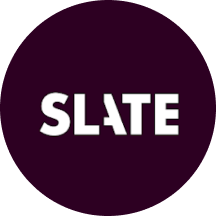Over 100 homeowners in Richmond, British Columbia, received alarming news this week. Mayor Malcolm Brodie informed them that a recent court ruling could render the titles to their homes worthless. The B.C. Supreme Court's decision in the case of Cowichan Tribes v. Canada established that the Cowichan Tribes hold Aboriginal title over parts of the Fraser River and Lulu Island, covering an area of 7½ square kilometers. This claim includes residential properties, farms, commercial sites, port authority land, and municipal properties.
The ruling raises concerns about property values, development opportunities, and homeowners' ability to sell or secure financing. It also creates uncertainty for residents regarding their property rights. Unlike many other regions in Canada, British Columbia's relationship with Indigenous peoples lacks a treaty framework that clearly transfers ownership from First Nations to the Crown. Instead, Aboriginal title must be "extinguished" for subsequent titles to be valid, a requirement the trial judge determined was not met in this case.
While the Cowichan Tribes did not seek to take private land from homeowners, Judge Barbara Young noted that the declaration of Aboriginal title could create uncertainty for those holding fee-simple titles. This uncertainty effectively places these properties in a precarious position, making them difficult to sell.
Interestingly, the claim faced opposition not only from federal, provincial, and municipal governments but also from the Musqueam Indian Band and the Tsawwassen First Nation. These groups argued against the claim because the Cowichan Tribes only used the lands seasonally for fishing, which undermines the rights of other First Nations.
Musqueam Chief Wayne Sparrow expressed concern about the reliance on the colonial legal system, stating, "It is especially concerning that they resorted to the colonial legal system, which was not established to respect or reflect our traditional teachings."
The ruling has sparked discussions about the implications of settler-colonialism in Canada. Many non-Indigenous Canadians are reminded through land acknowledgments and reconciliation efforts that they reside on Indigenous land. This situation raises fears that even those who have not directly participated in colonization could see their property rights jeopardized.
The trial judge suggested that the government should negotiate in good faith with the Cowichan Tribes, hinting at a potential financial settlement. Indigenous leaders have clarified that the case is not aimed at challenging homeowners' titles. However, legal experts warn that governments could face significant financial liabilities, potentially amounting to hundreds of millions of dollars in compensation.
Premier David Eby announced that his government plans to appeal the decision but will not take the case to the Supreme Court of Canada. He expressed concerns that such an appeal could lead to an "academic" ruling that does not reflect the realities faced by residents. Critics argue that property owners need clarity regarding their rights and should not be left in legal uncertainty, especially after a lengthy 11-year original case.
The broader implications of this ruling highlight the need for a balanced approach to reconciliation that does not undermine the rights of property owners. It is essential to ensure that the rights of Canadians who have built homes and communities are not compromised due to historical injustices. Investors require certainty, and homeowners deserve security in their property rights. The Supreme Court's involvement may be necessary to provide clarity and stability for all parties involved.

 Canada News
Canada News

 CBC News
CBC News Yahoo Canada
Yahoo Canada WNDU Sports
WNDU Sports IndyStarSports
IndyStarSports The Danville Register & Bee Entertainment
The Danville Register & Bee Entertainment Catholic News Agency
Catholic News Agency America News
America News Raw Story
Raw Story AlterNet
AlterNet Slate Politics
Slate Politics